#//meant for doug
Explore tagged Tumblr posts
Note
Eiffel and Minkowski hugging/being cute?

,,, you meant one or the other, right?
#god he looks like a wet rat#SORRY ANON#waiting for that one reblog to be like I MEANT HUGGING A N D CUTE 😭😭😭#LOOK I THINK HUGS ARE SUCH A GOOD ANGST SEGWAY JUST LOOK AT MY OTHER POSTS- YOU CANT BLAME ME#if I draw them being cute I’ll add it to this one I swear LMAO#wolf 359#wolf 359 fanart#w359#w359 fanart#doug eiffel#wolf 359 eiffel#renee minkowski#wolf 359 minkowski
232 notes
·
View notes
Text
making hera manage a space station is inhumane. she's supposed to be creating unmarketable art. post-canon hera makes like fifteen dollars a month off niche experimental multimedia poetry zines, eiffel is begging people to listen to his music on bandcamp (between an assortment of jobs that would be perfectly fine, if he could hold any of them for longer than two months), and they are both so, so lucky minkowski cares about them so much.
#wolf 359#w359#hera wolf 359#doug eiffel#i've said things like this to friends before but it's important to me#hera is good at math by nature of her brain being. a computer that is wired up to other computers.#but none of that what she WANTS to do. jobs for which the only requirement is having no pulse. etc...#eiffel and hera are meant to be minkowski's slacker roommates#hera needs to make friends with musicians who are making equally niche and unmarketable stuff#and she recommends it to eiffel whose taste is way too normal#and she's like i told them about your music too!! and he's like oh... great... <- sweating because he knows how devastatingly uncool#all of these people think he is.#this would be good for her.
595 notes
·
View notes
Text



The family roadtrip from Niagara Falls to NYC brought us to a route through Pennsylvania (since we were staying in New Jersey).
And I remembered that Doug has history in Pittsburgh (the absolutely opposite direction)
#the graveyard shift#the graveyard shift au#fnaf#five nights at freddy's#mike schmidt#michael afton#fnaf michael afton#dark deception#doug houser#dark deception doug#willy’s wonderland#the janitor#willys wonderland the janitor#noncanon#unless the void is just in rural ny#theyre in the janitor’s car#i forgot that at the time doug and his family live in nyc#and it validates my headcanon that doug is a musical theater nerd#anyway i do think doug would force the entire car to crash if it meant staying away from pittsburgh
70 notes
·
View notes
Text
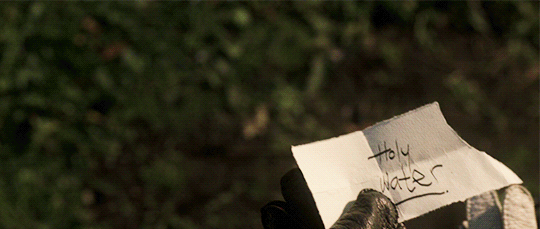
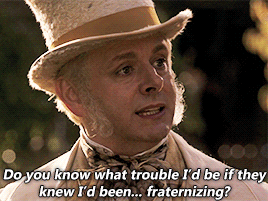
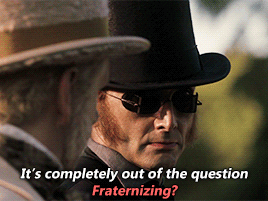

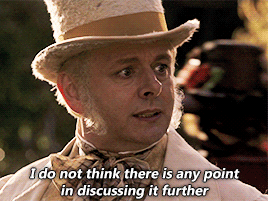
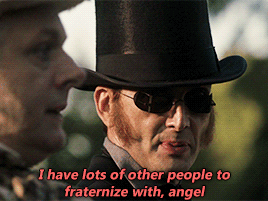

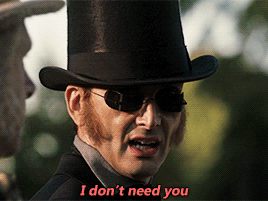
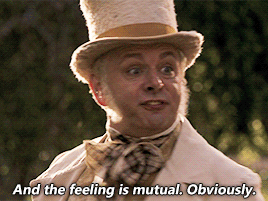

i need a favor. for if it all goes pear-shaped.
Hard Times
#good omens#goodomensedit#goedit#goodomenssource#aziraphale#crowley#david tennant#michael sheen#**#lkjsdhfsdf i have been thinking A Lot about what sort of fraternizing they got up to i'm not gonna lie to you girlies#also i'm not cropping crowley to look like he's wearing a doug dimmadome hat that is genuinely how they framed him in the show#i meant to gif this from the beginning bit but then crowley decided to rant about which living things have ears (all of them)#and that would've made it like 30 gifs#ik you can fit that many in a single post but uhhh i'm not making that shit lmfao#userdebs#useremi#ineffable husbands
169 notes
·
View notes
Text

💕 Mandatory lesson in humanity Valentine’s Day edition 💕
#I originally meant to draw Kepcobi but this was way more fun 🤠#heiffel#doug eiffel#alexander hilbert#wolf 359#my art#wolf 359 fanart#unhinged emoji of some type inserted here
80 notes
·
View notes
Text

#band camp boyfriend#i'm not calling you good boy#this meme was meant for doug lol#bcb doug#marching band
23 notes
·
View notes
Text
.
#idk if this is an unpopular opinion but i genuinely operate on the assumption that the writers never think of the storylines#(and the indications of their writing choices in the broader frame) as much as the fans do#not in the way that im criticizing their intelligence or anything like that i just dont think this is the type of show written like that#like idt when they were writing the sperm donor storyline they were considering buck's broader storyline re being conceived as spare parts#or that what name the characters call buck has that much of a deep meaning like yes i have my own headcanons about tommy calling buck evan#but idt it was a direction given to lou because tommy is meant to be seen as special/different from other LIs/characters#i dont even think they considered the moment buck told his parents not to call him that#not saying nothing has staying consequences in the show obv but it's like whatever the character has to get from it happens in that arc and#then we move on#there are some defining traumas that come back like bobby's family madney and doug and eddie losing shannon#but i usually watch the storylines contained to that arc#not as a part of the lore that the writers will always be vigilant of as they keep building on these characters#at least not to the degree a fandom does#this is why i never speculate based on previous storylines l#not beyond “this would have a lot of potential if they went that route”#no one in that writers room thinks about character lore and the nuances of characterization as obsessed fans is what ill say#does*
21 notes
·
View notes
Note
Who do you think tended to be consistently the strongest and weakest writers on the Buffy staff? [With the obvious caveat that TV writing is collaborative of course.]
Looking only at writers who are credited with at least five episodes so that we've got a decent sized sample of their writing (and, as you say, pretending for the sake of the argument that each episode was written entirely by the writer named in its credits), our long list is:
Dean Batali and Rob Des Hotel co-wrote five episodes together, starting with Season 1's Never Kill A Boy On The First Date and ending with Season 2's Killed By Death
Jane Espenson wrote twenty-three episodes, starting with Season 3's Band Candy and ending with Season 7's End Of Days (co-written with Doug Petrie)
David Fury wrote seventeen episodes, starting with Season 2's Go Fish (co-written with Elin Hampton) and ending with Season 7's Lies My Parents Told Me (co-written with Drew Goddard)
Drew Goddard wrote or co-wrote five episodes, all in Season 7, starting with Selfless and ending with Dirty Girls.
Drew Z. Greenberg wrote six episodes, starting with Season 6's Smashed and ending with Season 7's Empty Places
David Greenwalt wrote eight episodes, starting with Season 1's Teacher's Pet and ending with Season 3's Homecoming
Rebecca Rand Kirshner wrote eight episodes, starting with Season 5's Out Of My Mind and ending with Season 7's Touched
Steven S. Knight wrote five episodes, starting with Season 5's Blood Ties and ending with Season 6's Seeing Red
Marti Noxon wrote twenty-three episodes, starting with Season 2's What's My Line? (Part 1) (co-written with Howard Gordon) and ending with Season 7's Bring On The Night (co-written with Doug Petrie)
Doug Petrie wrote seventeen episodes, starting with Season 3's Revelations and ending with Season 7's End Of Days (co-written with Jane Espenson)
Joss Whedon wrote twenty-seven episodes, starting with Season 1's Welcome to the Hellmouth and ending with Season 7's Chosen
Unfortunately for people who like to claim that being a good person and being a good artist are correlated, I think it's pretty much indisputable that Joss Whedon was consistently the best Buffy writer. As well as every season opener and season finale except for Season 5's Buffy vs Dracula and both Season 6's Bargaining and Grave, Whedon-written episodes include Lie To Me, Innocence, Doppelgangland, Hush, Who Are You?, Family, The Body and Once More With Feeling. You could easily make a plausible top ten of Buffy episodes without picking episodes written by anybody else.
It's true that Whedon has a very particular style, that his characters all tend to default to speaking in a certain way and that he is a lot better at mood and metaphor than tight, multi-layed plotting. I'm not sure this is an approach that necessarily works well outside of the show (as well as easy targets like Avengers 2 or Whedon's bizarre Wonder Woman script or whatever was going on in the post-Chosen comics, I should admit I don't think fan-favorite Firefly is very good either), and by all accounts he's a pretty terrible human being as well, but as a writer on Buffy I think his work is consistently very good. The worst Whedon-written episodes are probably the opening two parter, Welcome to the Hellmouth/The Harvest, Season 1's Nightmares and Season 3's Amends, and I think it's a stretch to call any of them bad episodes.
Of the other good Buffy writers ... well, I wouldn't be much of a Faith fan if I didn't mention Doug Petrie (whose best episodes include Revelations, This Year's Girl, No Place Like Home and Fool For Love), but I think his Season 6 and Season 7 episodes are quite a bit weaker. I'm not a huge fan of Season 4's The Initiative either.
Marti Noxon had as big an influence as anyone on the show other than Whedon, but 'consistent' is not the word I'd use to describe her. Her best epsiodes (I Only Have Eyes For You, Consequences, The Prom, Forever, Bargaining) are fantastic, her worst ... well, she wrote the worst two episodes of Season 3 (Dead Man's Party and Beauty and the Beasts), she wrote Buffy vs Dracula (which I know some people love but I can't stand at all) and she wrote (or cowrote) Bewitched, Bothered & Bewildered and Doomed and Into the Woods (all three of which, I think, would be in the running for a list of the show's worst ten episodes).
I think Petrie and Noxon are probably the show's best two writers after Whedon. I know a lot of people really rate Jane Espenson's work, and I do like a lot of her episodes (Earshot and Band Candy are both very good), but she also wrote some real stinkers (Pangs, A New Man and ... again, Doomed). She doesn't quite have any real knockout episodes, for my money.
Worst writer is a more hotly contested category.
David Fury wrote (or co-wrote) Lies My Parents Told Me and Go Fish (and, not to keep banging on about it, Doomed) which is a pretty good claim to the title of "worst writer", but he also wrote Helpless, Choices, Fear Itself and Real Me and at least co-wrote Bargaining. So I don't think, hand on heart, that he can possibly be the worst Buffy writer. Certainly not consistently so.
David Greenwalt wrote (or co-wrote, with Whedon) School Hard and Ted and Faith, Hope & Trick and Homecoming, all very good episodes. But he also wrote Teacher's Pet, which .... uh.
Probably the consistently weakest writers are the ones who didn't really write anything dreadful but also never wrote anything particular amazing.
Dean Batali and Rob des Hotel's worst episode is the forgetable Killed By Death, and I'm not sure I could tell you what their best episode is. Never Kill A Boy On The First Date, maybe? I think I like that one more than most people do.
From the other end of the show's run, there's Drew Z Greenberg, whose worst episode is probably a tie between Him and Empty Places and whose best episode is ... uh. Entropy, maybe? And David Goddard, who only wrote for the show's worst season and who managed to cowrite Lies My Parents Told Me, easily the show's worst ever episode (and I am not as much of a fan of Selfless as many people, although I'd agree it's certainly his best work).
It's no secret that Season 7 is my least favorite season, and while I don't think Season 1 is objectively great, it -- and the early parts of Season 2 -- have a certain nostalgic charm I don't really get from the rest of the show. So I guess I'd pick one of the Drews, either Greenberg or Goddard, if I had to pick a single worst writer. Or fail to pick one, as it happens, because I can't pick between them.
Though I think the absolute best sign that an episode is likely to be a stinker is if it's credited to more than one writer, especially writers who don't normally write as a team. There are a handful of exceptions -- Conversations With Dead People comes to mind -- but on the hand you've got 'classics' like The Pack and Go Fish and Flooded and Life Serial and Sleeper and Bring On The Night and Lies My Parents Told Me and End Of Days. That's a pretty consistent list of dubious to terrible episodes right there.
Oh, and don't forget Doomed, the only episode of the show officially credited to three different writers. Have I mentioned that I don't like Doomed? Because I really don't like Doomed.
#btvs#thanks!#sorry this sat in my inbox for so long#for context I got to Doomed in my latest Buffy rewatch then gave up#apparently Doug Petrie was meant to write it but he went to get married that week instead
24 notes
·
View notes
Text
Pan-Pan, Boléro, and Minkowski's different responses to loss
I want to compare two key lines of Minkowski's which indicate very different responses to grief:
In Ep29 Pan-Pan, Minkowski breaks down and says "Doug Eiffel is gone! There was nothing we could do to save him. It wasn't anyone's fault. It's horrible, and pointless, and it just happened."
In contrast, after arriving at the funeral in Ep46 Boléro, she says "[Lovelace, Hilbert and Maxwell are dead] to make the fact that we're not gone yet important. They're gone... so that we never forget how important it is that we're still here."
TL;DR: In Pan-Pan, Minkowski expresses her unprocessed grief through despair and hopelessness. Whereas in Boléro, she is able to find hope in the loss and lead her crew in trying to move forward. I suggest a significant reason of the difference is the presence of Eiffel to force Minkowski to confront and process the sense of loss.
Pan-Pan: "It's horrible, and pointless, and it just happened"
In Pan-Pan, the whole episode is full of anger and despair, but Minkowski speaking about the horrible pointlessness of losing Eiffel is one of the most painful and hopeless moments. It doesn't feel like she's really speaking to the others. She's focused on her internal despair (as suggested by the fact that she goes on to talk about the cracks, which Lovelace and Hilbert aren't supposed to know about).
The only potentially positive thing Minkowski says here is her recognition that "it wasn't anyone's fault". When Hera and Hilbert have been blaming Lovelace, and Minkowski has been blaming herself, it's significant that she acknowledges that sometimes a horrible thing just happens without there being anyone to blame.
But in this context, and in the tone of voice Minkowski uses, even the lack of blame doesn't really feel like a positive thing. If Eiffel becoming stranded was just pointless and random, if there was nothing any of them could have done to save him, then the next tragedy might be just as unpredictable and unpreventable. Minkowski strikes me as the kind of person who can sometimes fall into the trap of subconsciously wishing that the awful thing is her fault because then at least she'd have control over something. In her train of thought here, the lack of blame is followed by focusing on how horrible and pointless what happened to Eiffel was. The only conclusion she can draw is "it just happened". There's no sense of hope in those lines. Eiffel being stranded just happened, and so do the cracks, and the crew are at the whims of brutal fortune with no meaning to any of it.
Boléro: "They're gone... so that we never forget how important it is that we're still here"
In Boléro, Minkowski can't even say that the tragedy wasn't anyone's fault. For each of the deaths, someone pulled a trigger. There is blame, and some of it lies at her feet. She didn't want to come to the funeral because at first she didn't know what she could say about the deaths she feels responsible for.
Yet even so, this time she finds something reassuring she can say to her crew, a grain of hope she can provide without attempting to diminish the loss: "[they're gone] to make the fact that we're not gone yet important. They're gone... so that we never forget how important it is that we're still here."
In another show, or another context, this kind of line might have had an 'everything happens for a reason' tone, which is something I deeply dislike as a response to other people's loss. But it doesn't feel like that's what Minkowski is saying here at all. She isn't trying to make any grand philosophical statement about the ultimate beneficence of the universe, or about how mortality gives meaning to human life. What she says here is working on a much more personal level. It's more about finding something other than despair that the crew can take from what has happened. This tragedy may still be horrible, but it provides a reminder that they are still alive in a context where that's far from guaranteed. Minkowski emphasises that the fact the survivors are alive matters - her crew matters. I'd argue that this contrasts with the 'it just happened' outlook discussed above.
I don't know how much Minkowski fully feels the importance of them still being there in the moment, but it's something that she can offer her crew, something that she can say in a situation that words can't grasp. I think the moment when she joins the funeral is such a key moment of her leadership. In the end, despite her doubts and struggles, she's there for her crew. Eiffel brought them together for a funeral, but he doesn't know what to say when Hera asks why they have to be gone. Minkowski enters just at the right moment to support her crew and she provides an answer to Hera's question. It's not a perfect answer, but it allows the funeral to move forward. It allows the crew to move forward (even if that emotional movement is somewhat thrown off by a dramatic change in the circumstances). Minkowski starts off the eulogies; she leads her crew in the acknowledgement of what's been lost.
Why such a difference in responses?
There's lots of ways you could interpret the difference between the outlook of these two moments, and there's probably more to say about it though the lens of Minkowski's character development than I'm going to say here. But for me, the main difference between these moments is that, in Pan-Pan, it feels like no processing or recognition of grief has really occurred. When Minkowski says "Doug Eiffel is gone!", it almost feels like the first time that Minkowski has fully confronted and acknowledged the loss. Eiffel has been lost in space for 116 days, but it's only at the end of this episode that Minkowski brings herself to say in her distress calls that he is "presumed dead". Whereas in Boléro, she's already eulogising the dead and thinking about what can be learned from the loss, not even a full day after the mutiny.
Obviously there is much less ambiguity to a body bag (or least there would be, if not for alien interference). But I can't help thinking that the difference between the attitudes towards loss which Minkowski displays in these two quotes is less about the difference in the kind of loss, and more about a situation that prompted and enabled the processing of emotions in Boléro: namely, the funeral. After Eiffel was stranded in space, I think Minkowski probably went months without looking her grief in the eye. But after the deaths of Lovelace, Hilbert, and Maxwell, Eiffel's suggestion of a funeral forces Minkowski to confront her complicated emotions and provides a space in which she can offer direction to her grieving crew.
This is a good illustration of how I think Minkowski and Eiffel complement and support each other in a really valuable way. On his own, Eiffel couldn't provide the leadership that the crew needed for the funeral to work. But without Eiffel, and his determination to recognise the emotional weight of the three deaths, the funeral would never have happened and Minkowski would never have been in a position to provide hope and direction to her crew. When Eiffel was the one the Hephaestus crew were grieving, Minkowski couldn't offer much emotional direction to her crew beyond despair. But when Eiffel is beside her in the grief, saying that the grief deserves to be felt, then Minkowski can find a way for them to move forward emotionally. It's not the deaths that remind them how important it is that they are still here. It's the grief. It's the ability to confront that grief together.
#Wolf 359#w359#Renée Minkowski#Renee Minkowski#Doug Eiffel#I know that this is a lot to say about two short-ish quotes but I think they are symbolic / indicative of broader patterns#Also some of this probably contradicts things that I've said at other points#about how Minkowski dealt with Eiffel being stranded in space#But it's complicated. okay?#Sometimes I want to think about her grieving him and what that would look like#And sometimes I want to think about how in his absence she's much less able to process her emotions at all#Either way I'm emotional about them#This wasn't even initially meant to be a Minkowski & Eiffel post tbh#I just had this thought as I was writing this#It also wasn't meant to be 1000 words but these things just happen#Btw when I say I dislike the idea 'everything happens for a reason'#I fully respect if people find that a useful approach for their own personal misfortunes#but as soon as you start saying it to anyone else who is suffering#it feels distasteful to me#Maybe everything happens for a reason but sometimes the reason is shit etc#Eiffel & Minkowski#w359 spoilers#Wolf 359 spoilers#the empty man posteth#tw death#tw grief
57 notes
·
View notes
Text

Doodle I made of Chell and Doug escaping together and relaxing in the wheat field as the sun sets
54 notes
·
View notes
Text
So I think we can all agree that Editorial is a joke at this point right? I refuse to believe that there’s anyone even there at this point
#randyvents#idk SPOILERS I GUESS but the bio for duke at the back of the issue lists Doug & Elaine as dead like???#DID YALL SERIOUSLY KILL THEM OFF PANEL??? DID YALL JUST READ ‘JOKERIZED’ AND ASSUMED THAT MEANT DIED LIKE??????????????????#Elaine JUST got cured too what the hap is fuckening 😭😭😭😭😭😭😭😭#ihatecomicsihatecomicsihatecomics#<-said in a way that I will never stop reading them to be clear#my frustration is THRU the roof I can’t even#and I still gotta work today too wtffffff#*back of the dc power issue. sorry forgot to clarify that earlier#still need to read the actual story itself & also I’ve been SLOGGING thru urban legends 🙃#sorry for missing a post yesterday yall. January’s been an Entire Ordeal™️
34 notes
·
View notes
Text
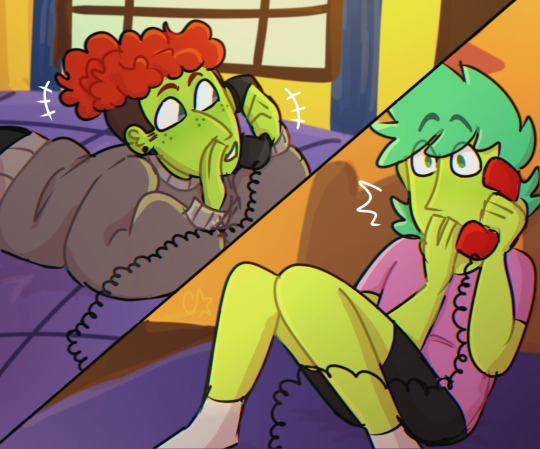
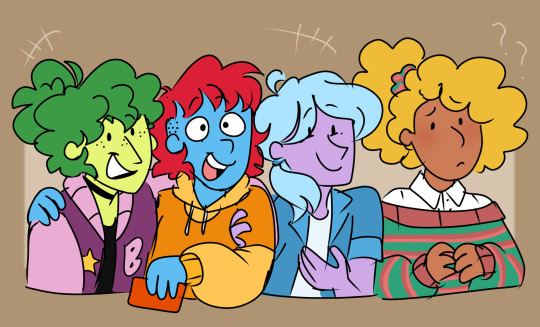
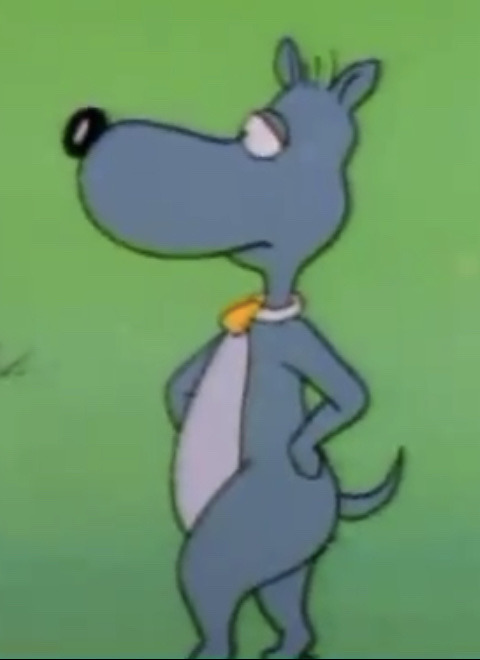
ermm i’ve been gone a while so here’s some choker and also fankids…i may talk abt them a bit more if people are curious (yes i’m aware of doug kids) (no i do not give a care)
#art#doug#nickelodeon doug#disney’s doug#fanart#roger klotz#chalky studebaker#roger klotz x chalky studebaker#choker#fankids#i hate doug funnie#roger and chalky are meant to be idgaf#they gossip n shit#i lvoe my fankids they should’ve had me design the reboot characters#/j
31 notes
·
View notes
Text
chatters . . . the difference in the way bizly and charlie describe horror elements . . . . thinking stuff
#pd liveblog#wait why did william have a can of mountain dew. meant for doug specifically#charlie why did you specify that#fucking queer
11 notes
·
View notes
Text
You know somehow i do miss yassified baron afanas his old hairstyle. It had a diffrent look on him. And a sleight of diffrent color as well?


Or am i wrong? Is it a diffrent wig?
Also why does the baron in s4 look less serious than how he looks in s5?
Thoughts are welcome.
#baron afanas#these kind of things keep me awake at 2 am#i thought when doug said the baron would have a new look i thought he meant this. but What he really meant was bacon baron lol#wwdits
30 notes
·
View notes
Photo




Doug & Steve’s mum adopted not one, but TWO staffies
#dougie is meant to be dead with an osteosarcoma#and they wanted a staffy puppy sooner rather than later so steve didn't have to be an only dog when doug passes#an 8 year old crusty heart worm positive staffy comes in for euthanasia#so naturally their sucker of a mum adopts her#and then the owner says she needs to get rid of their other staffy too#and D&Ss mum was like sure ok i'll take both#anyway it's been like 2 months since dougie's diagnosis and he's still going strong#so they're cruising along with four dogs lol#boss#nala
94 notes
·
View notes
Text
on one hand, it's kinda unfortunate that the very first time hera ever says minkowski's name in the show she mispronounces it the way eiffel does, and it's obviously one of those early series growing pains type things. however. on the other hand. it exists in the show and in-universe it becomes one of those "spending too much time with eiffel" things instead. he got in her head. after being the primary person she's been speaking to for hundreds of days by that point, something like that was bound to happen eventually.
#wolf 359#w359#doug eiffel#hera wolf 359#there's so much intentionality with names and who calls who what. when and why. that sure is a sentence#that those early parts of the show where things. aren't as careful. end up having other implications they weren't really meant to have#gabriel urbina has said so many times that he wishes that line in ep 13 was the first time minkowski called eiffel 'doug'. yeah. i get it.#and then you have... i don't think this with hera and minkowski is really that meaningful in terms of their relationship#but it is an interesting mistake in that. since eiffel is the only one who mispronounces minkowski's name and he doubled down on that#out of disrespect.#it does kinda like strangely work in how it accidentally aligns hera with eiffel. though she would never do that to minkowski on purpose#i think after a certain point it's just habit for eiffel but it's definitely. something. that you can tell how much respect he's showing#at any given moment through most of the show just by whether he calls her 'minkowski' (mispronounced) or 'commander'#and then of course you have hera calling eiffel 'doug' in am i alone now and then never again and never to his face. which.#someday i'll figure out how to express how i feel about that.
92 notes
·
View notes